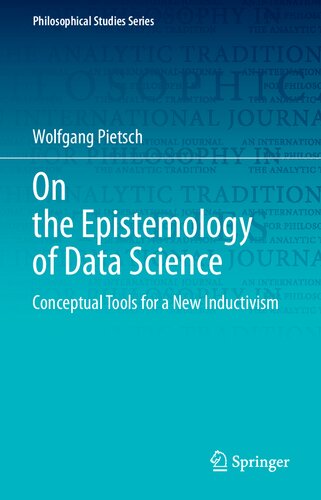

Most ebook files are in PDF format, so you can easily read them using various software such as Foxit Reader or directly on the Google Chrome browser.
Some ebook files are released by publishers in other formats such as .awz, .mobi, .epub, .fb2, etc. You may need to install specific software to read these formats on mobile/PC, such as Calibre.
Please read the tutorial at this link: https://ebookbell.com/faq
We offer FREE conversion to the popular formats you request; however, this may take some time. Therefore, right after payment, please email us, and we will try to provide the service as quickly as possible.
For some exceptional file formats or broken links (if any), please refrain from opening any disputes. Instead, email us first, and we will try to assist within a maximum of 6 hours.
EbookBell Team

4.7
76 reviewsThis book addresses controversies concerning the epistemological foundations of data science: Is it a genuine science? Or is data science merely some inferior practice that can at best contribute to the scientific enterprise, but cannot stand on its own? The author proposes a coherent conceptual framework with which these questions can be rigorously addressed.
Readers will discover a defense of inductivism and consideration of the arguments against it: an epistemology of data science more or less by definition has to be inductivist, given that data science starts with the data. As an alternative to enumerative approaches, the author endorses Federica Russo’s recent call for a variational rationale in inductive methodology. Chapters then address some of the key concepts of an inductivist methodology including causation, probability and analogy, before outlining an inductivist framework.
The inductivist framework is shown to be adequate and useful for an analysis of the epistemological foundations of data science. The author points out that many aspects of the variational rationale are present in algorithms commonly used in data science. Introductions to algorithms and brief case studies of successful data science such as machine translation are included. Data science is located with reference to several crucial distinctions regarding different kinds of scientific practices, including between exploratory and theory-driven experimentation, and between phenomenological and theoretical science.
Computer scientists, philosophers and data scientists of various disciplines will find this philosophical perspective and conceptual framework of great interest, especially as a starting point for further in-depth analysis of algorithms used in data science.